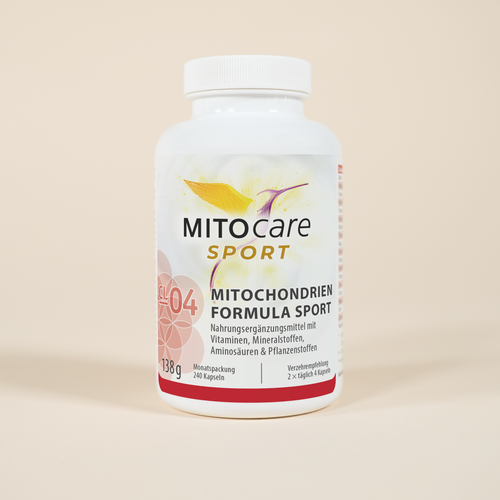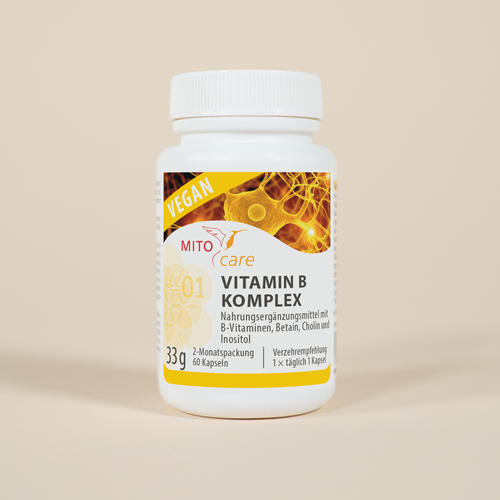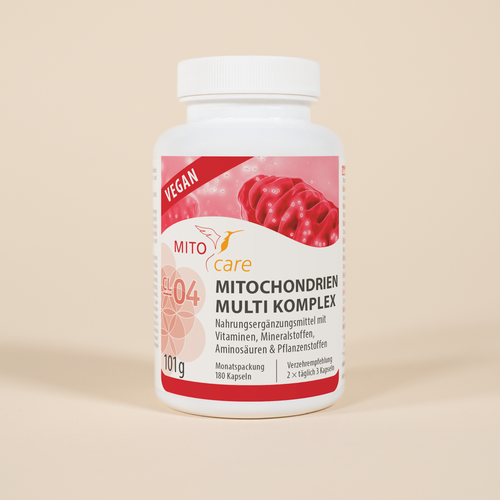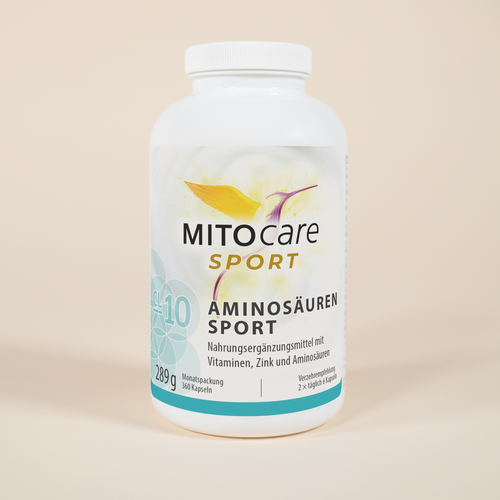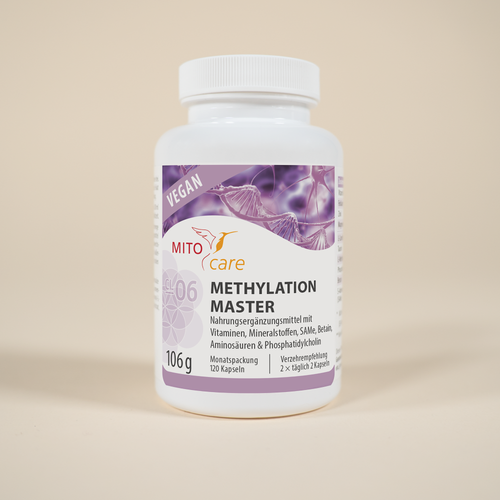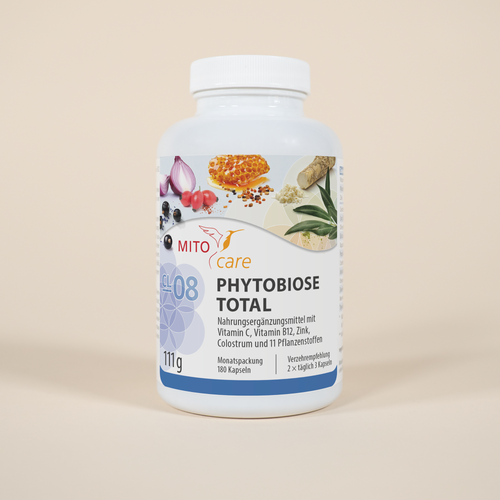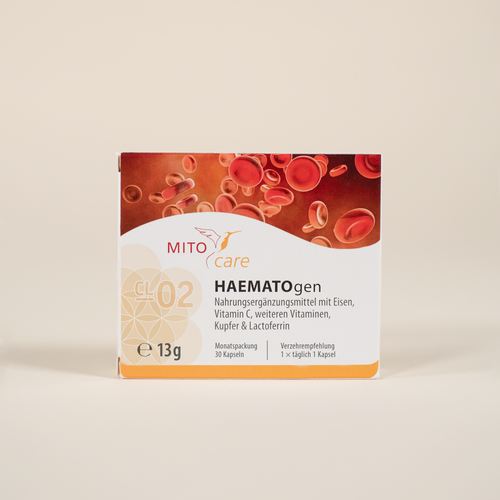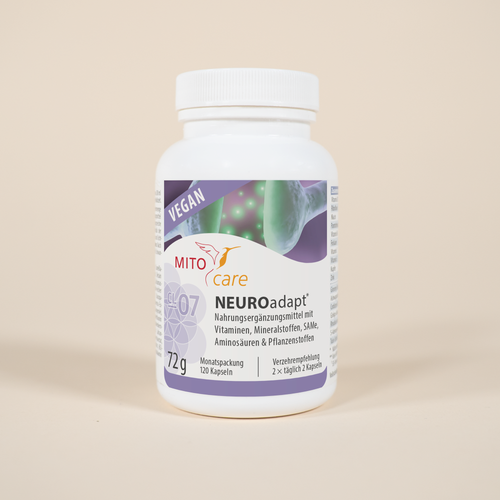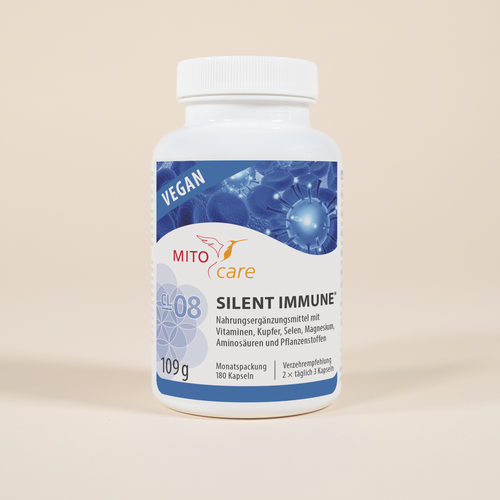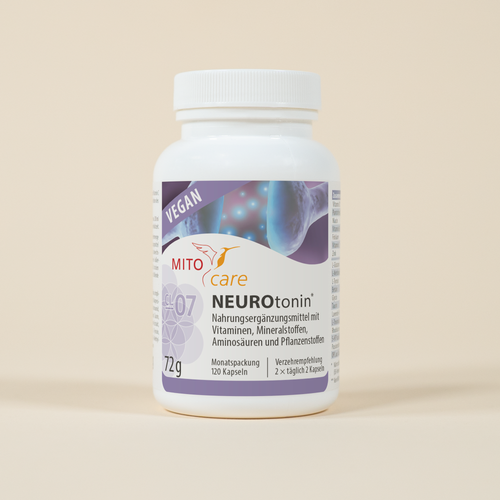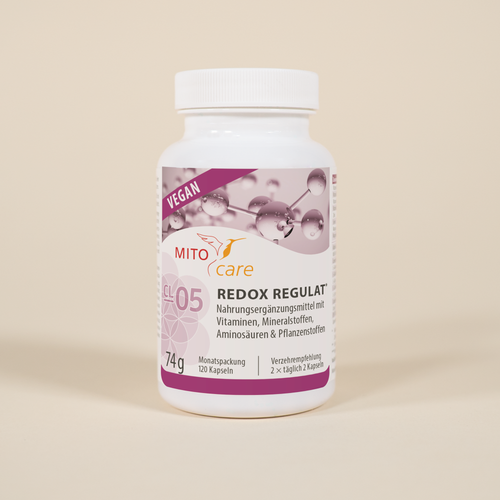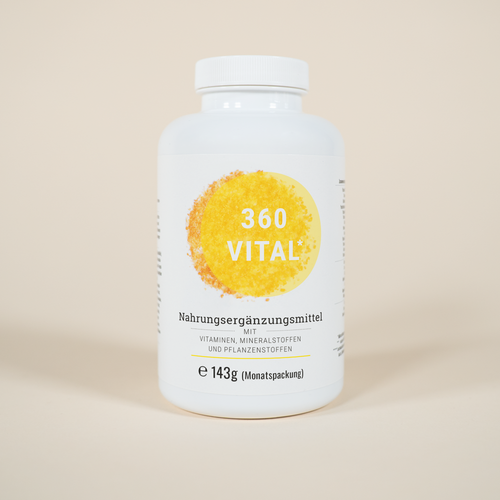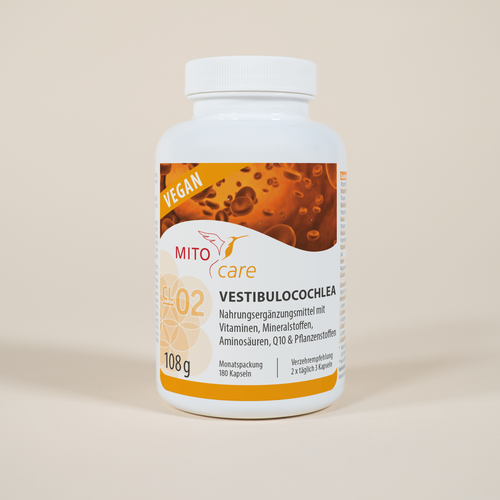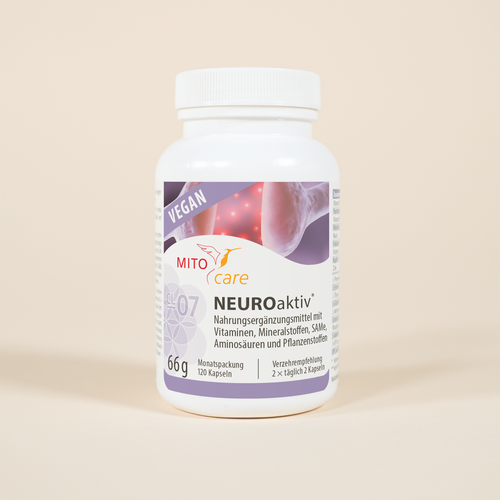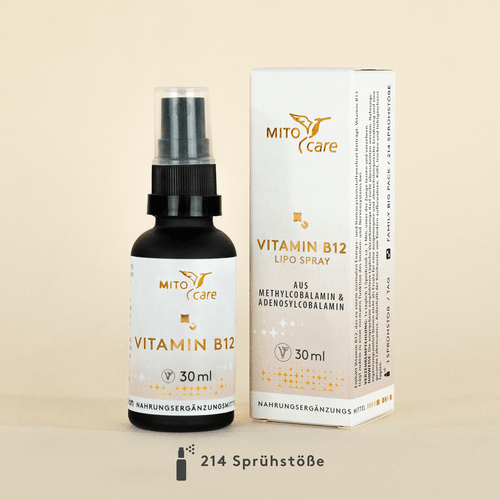

Knowledge blog > Micronutrient dictionary
Vitamin B12 (cobalamin)
Themen dieses Blogartikels:
What is vitamin B12?
Vitamin B12 is a water-soluble vitamin from the group of B vitamins. The medical name is cobalamin. In food supplements, you should avoid products with the ingredient cyanocobalamin. This form of vitamin B12 is inactive and not particularly bioavailable1. Instead, take methyl- and adenosylcobalamin.2
What are the functions of vitamin B12?
The function of vitamin B12 in the nervous system stands out. Vitamin B12 is important in the breakdown of certain fatty acids and, like vitamin B9, is also relevant in methyl metabolism. Vitamin B12 is also involved in the production of SAM (S-adenosylmethionine). Cobalamin is also involved in blood formation and in the breakdown of certain amino acids, which can then be used to generate energy.3
What makes vitamin B12 unique?
Although vitamin B12 is only involved in two enzymatic reactions as far as we know, the importance of the vitamin is high. This may be related to its influence on methyl metabolism. However, its importance for the CNS has still not been conclusively clarified. Only the serious deficiency symptoms indicate the importance of the vitamin.4
How much vitamin B12 do you need per day?
According to the German Nutrition Society (DGE), estimates for an adequate vitamin B12 intake are as follows8:
| Age | VitaminB12 µg/day | |
| Infants | ||
| 0 to under 4 months | 0,5 | |
| 4 to under 12 months | 1,4 | |
| Children and teenagers | ||
| 1 to under 4 years | 1,5 | |
| 4 to under 7 years | 2,0 | |
| 7 to under 10 years | 2,5 | |
| 10 to under 13 years | 3,5 | |
| 13 to under 15 years | 4,0 | |
| 15 to under 19 years | 4,0 | |
| Adults | ||
| 19 to under 25 years | 4,0 | |
| 5 to under 51 years | 4,0 | |
| 51 to under 65 years | 4,0 | |
| 65 years and older | 300 | |
| Pregnant women | 4,5 | |
| Breastfeeding | 5,5 | |
When do you need vitamin B12 most?
If SAM is deficient and the antagonist homocysteine is elevated, this can be an indicator of inflammatory diseases such as arteriosclerosis5. Methylcobalamin can help to provide methyl groups. Vitamin B12 is also required for learning or similar, as this is where memory is active6. The need for vitamin B12 should not be underestimated in the case of anaemia7. Often only iron is given here instead of a combination preparation that contains all the important factors.
How does an vitamin B12 deficiency develop and how does it manifest itself?
A vitamin B12 deficiency is associated with serious neurological damage that can affect concentration, nerve conduction speed, sense of touch, reflexes, movement and memory. Blood formation is also impaired, which can lead to anemia. Possible signs of a vitamin B12 deficiency can include hair loss, tiredness and muscle weakness. As vitamin B12 is only found in animal foods in relevant quantities, vegans and vegetarians are particularly affected by a deficiency. However, chronic inflammatory bowel disease, anorexia and chronic kidney or liver disease can also contribute to a deficiency.9
What happens if there is an overdose of vitamin B12?
It is virtually impossible to absorb excessive amounts of vitamin B12 through food, as the excess is not absorbed or excreted. The Federal Institute for Risk Assessment (BfR) recommends a maximum amount of 25 µg vitamin B12 per day for food supplements10. Overdosing can lead to health problems such as dizziness, vomiting, diarrhea and skin rashes. Persistent overconsumption can lead to damage to the nervous system.11
Which foods are particularly high in vitamin B12?
Liver and kidneys contain by far the most vitamin B12. Fish, as well as small amounts of cheese and egg yolk, also contain vitamin B12. The vitamin is hardly present in plants. Traces can be found in soy, tempeh and ginger. There are indications that algae could also be a good source of vitamin B12, but there are no human studies to confirm its bioavailability. For vegans, vegetarians and people who do not regularly consume offal, an adequate supply of vitamin B12 is rather critical. A high-quality dietary supplement may therefore be advisable under certain circumstances.
Further blog articles on the topic

What vitamins are there and what do they do in your body?

What are the functions of water-soluble vitamins?

Vitamins for athletes: Which nutrients give you power?

Vitamin B1 (thiamine)

Vitamin B2 (riboflavin)

Vitamin B3 (niacin)

Vitamin B5 (pantothenic acid)

Vitamin B6 (pyridoxine)

Vitamin B7 (biotin)

Vitamin B9 (folic acid/folate)
This dictionary entry is based on carefully researched sources:
Bibliography & Sources
- quarks.de/gesundheit/ernaehrung/vitamin-b12-und-vegane-ernaehrung/
- flexikon.doccheck.com/de/Methylcobalamin
- vitalstoff-lexikon.de/Vitamin-B-Komplex/Cobalamin-Vitamin-B12/Funktionen
- ndr.de/ratgeber/gesundheit/Vitamin-B12-Mangel-Wenn-die-Nerven-leiden,vitamine144.html
- flexikon.doccheck.com/de/Homocystein
- aerztezeitung.de/Medizin/Wenn-das-Gedaechtnis-streikt-fehlt-manchmal-nur-Vitamin-B12-328850.html
- msdmanuals.com/de-de/heim/bluterkrankungen/an%C3%A4mie/vitaminmangelan%C3%A4mie
- dge.de/wissenschaft/referenzwerte/vitamin-b12/
- netdoktor.de/laborwerte/vitamin-b12/mangel/
- bfr.bund.de/cm/343/hoechstmengenvorschlaege-fuer-vitamin-b12-in-lebensmitteln-inklusive-nahrungsergaenzungsmitteln.pdf
- alta-klinik.de/ratgeber/vitamin-b12/
